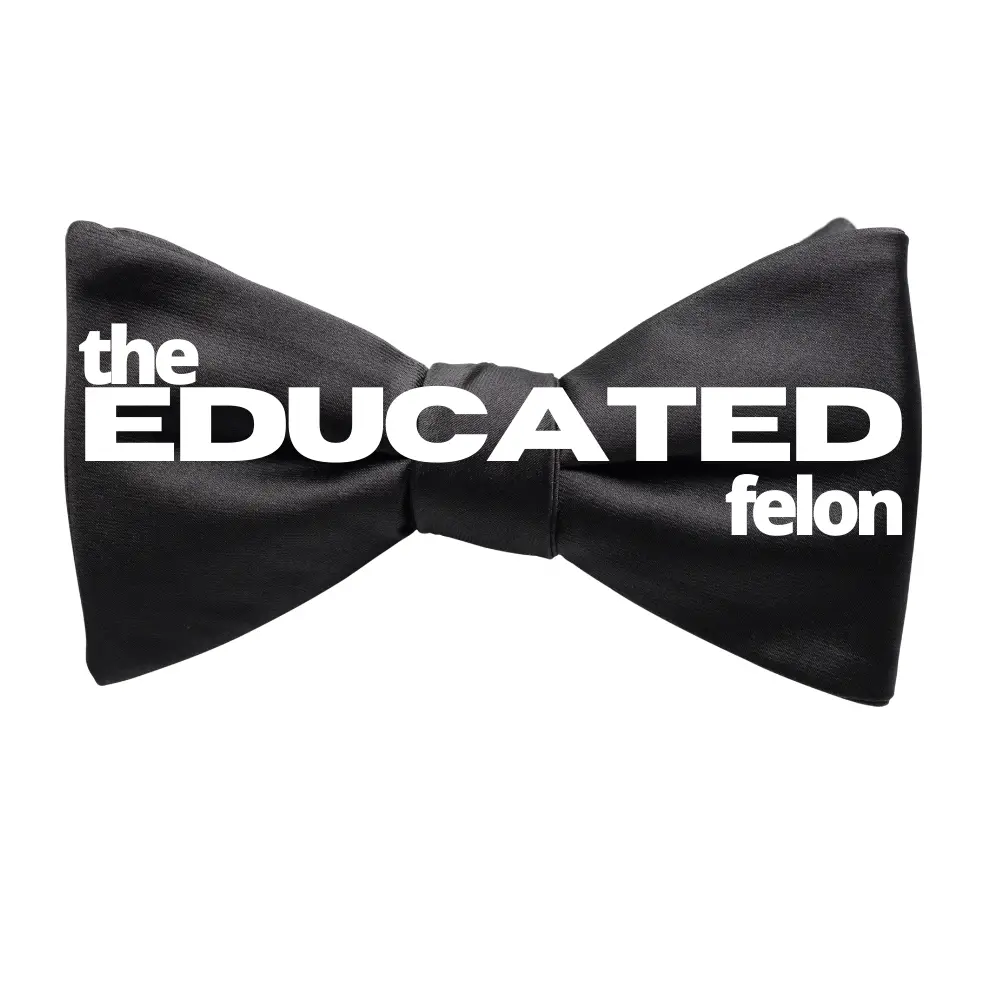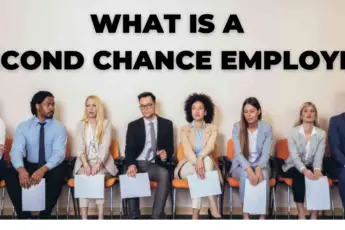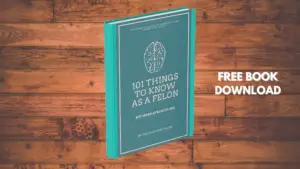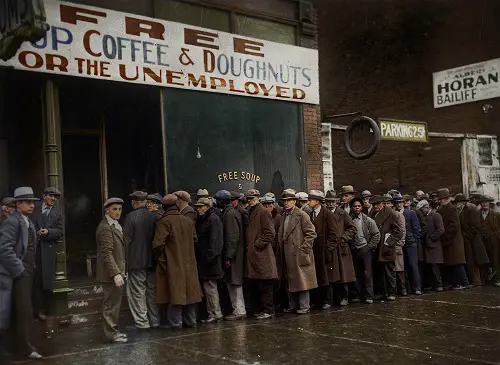
THE FELONS GUIDE ON HOW TO CREATE ASS KICKING REFERENCE LETTERS
In this article we will go over the value, importance, and overall effective power yielded by a well-executed reference letter. This will be particularly useful for any individual who’s incurred some legal setbacks. Over the years I’ve used many reference letters to assist me in court, securing a place to live, building credit, and most notably-employment. After reading this, you will be able to as well.
WHAT IS A REFERENCE LETTER?
A reference letter is a letter in which the author explains and endorses the character traits and qualities of a particular individual. A reference letter is normally used for scholarship or job applications but can also be used to secure housing and even in legal matters.
The right words said of you from someone in an authoritative position can make all the difference in achieving your objective. It has become more common to directly attach reference letters as opposed to merely providing contact details.
We all know that life is not easy, and it is tough world out there for someone overcoming a felony conviction.
It is fact that the biggest barrier for an improved quality of life is good employment, and as it stands in the current job climate, employers are a tad spoiled and are cherry picking, due to the overwhelming response of applicants. So, for a would-be applicant to include a little hiccup like their felony conviction, many prospective employers tend to pass and not take a risk on that individual.
Obviously, the applicant wants to get to the point of being face to face with a decision maker in order to explain why they’d be a great hire. With that, I vividly recall the uneasy feeling of having to repeatedly explain my background. The facial expressions I got. The terrible awkwardness to it all.

I knew I was qualified; I just did not know how to go about explaining my felony. Not only that, but the people interviewing me made me feel extremely uncomfortable. I know they didn’t know me, and it’s not their fault. It’s just how the world operates.
I didn’t help matters though, as the mounted frustration building in me was evident. Putting on the fake smile and explaining past digressions to countless strange faces was incredibly overwhelming.
Mind you, this was in effort to get the opportunity to just be in a position to have an opportunity. Let me repeat that. I just wanted the opportunity to have an opportunity. Does that make sense?
I don’t want to make excuses, and nobody likes a cry baby, but a felony on record negates a lot of opportunities I would have otherwise qualified for. Just saying. But hey, I’m upfront about my background on interviews. Why skirt around it. Even worse, pretend it’s not there.
I’ve known plenty of qualified individuals who have gone through the screening process without mentioning a word of it, with everything going so well. They submit to the dreaded background check and then things go quiet. They wonder and agonize as they wait for what seems like an eternity, hoping to hear something; anything.
When they don’t, out of desperation they finally break the silence and do say something but it’s usually not good and/or too late and is now damage control. A would-be comedy of errors and looks like they’ve been hiding something all along. Which they have.
Given the situation, I believe in putting it out there. Why hide it. They are going to find out anyways (most likely). Plus, I’ll sleep better at night knowing I put all the cards on the table.
To each his own, but why not try and dictate the course of events by controlling the manner in which it’s presented. You see, it is all in the execution, and the delivery to it. We all know having to explain certain situations can be a bit daunting. It’s awkward. Awkward as hell. And awkwardness kills many things.
Awkwardness can kill conversations. It can kill conversations in your business relationships. In your personal relationships, and it kills opportunities.
People want to feel comfortable and to feel secure. They want to want to trust you. And it’s your job to put their mind at ease, making them comfortable with you, and with your story. It’s an art, not a science. There’s really no right way to do it, but there are plenty of wrong ways that I’ve seen over time.
Having said all that, I’ve been through the interview process hundreds of times. Before my legal woes and after. Been on both sides of the table. The one conducting an interview, and the one applying for the position.
I think about what someone could have said (or not said) that would have changed my mind. What little things could have been done to make a difference in swaying the decision. What could have helped in producing a different outcome.
I think back on what I could’ve said in that moment, while I had that person’s attention and eyes drawn on me. I mean, you have to agree, in this attention deficit world we live in, where people couldn’t be bothered to even look up from their phone; to have someone focus on little old you for that moment is well, somewhat special.
What do you do with that? What do you say? The vast majority are very nervous in that situation. Even more, if one has a criminal conviction.
There to help you speak, so you don’t feel all alone in those situations, are reference letters.

Reference letters are your cheerleaders and supporters, speaking well of you on your behalf. They address your past in the present, while still having the ability to talk about you in the future, long after you’ve left the room.
They are in fact, a game changer, allowing one the opportunity to change the mind and opinion someone may form and feel about you. This is done by the explanation of your background and story, and having these letters support you on that.
References are endorsements. Figure out who can endorse you. Who do you know that can add support to your story. Use your connections. Don’t have any? Please…. You have to have some.
GOOD REFERRAL SOURCES
- Family
- Friends
GREAT REFERRAL SOURCES
- Co-Workers
- Employment Supervisors
- Human Resources
- Teachers
- Attorneys
- Probation Officers (If they’ll commit due to liability)
- Ministers and Church Faculty
- Charitable organizations
- Business Owners & Operators
- Leaders, authority figures, and basically anybody with power or influence, that is respected by the community
Let your letters speak for you, highlighting different traits you possess that benefits the other party. When compiling your collection of letters, they’re certain key words to be emphasized.
Family, growth, clarity, hardworking, driven, purpose, character, trustworthy, team player, experience, punctual, learning from mistakes, determined, change, positive, focused, responsible.
Now I’m going to give you an outline of some good all-around reference letters to have in your possession. Please don’t copy this word for word.
It is merely to give you an idea on how to structure the letter, what to ask for, and what you want it to accomplish (the trait you want to highlight). You should plug and play different things in order to fit your own individual situational needs. These letters are here to help build a story. Your story.
FOR YOUR BENEFIT. FOR YOUR STORY. FOR YOU.

The Felons Guide to Ass-Kicking Reference Letters
Example 1 – The Co-Worker

Example 2 – The Big Brother

Example 3 – The Past Employer

Example 4 – The Supervisor

Notice how they all drive home the point of what kind of worker, but more importantly, the person you are. That you are valued and respected by your team, and all those around you. That your dedication, focus, and commitment to creating a better quality of life is recognized.
Reference letters are powerful and effective. They should be clear and to the point without rambling. They support you and allow you to tell your story when sitting in front of somebody. A single letter is good, but several letters collectively working together speak volumes.
Psychologically, it relieves you of some pressure, and the dilemma when going about explaining your background. It also puts both you and the other party more at ease (less awkward), as they have something physical to look at while you’re talking. So, somebody is not staring you down throwing you off your game.
I can’t stress the pivotal role these letters play, as many people have gaps in their employment history due to incarceration or unemployment. Simply put, these letters work for you, yet not very many people have a collection working for them. Why is that?
Laziness, shame, maybe even embarrassment. Thinking it’s beneath you to ask someone for a referral. C’mon, get over yourself, and play the game.
For the individual who’s incurred legal complications, a well put together reference letter speaks loudly in a silent way.
The Educated Felon
A few final tips:
- Letterhead written letters are much more official and should be the way to go if and when possible.
- Pay close attention to grammar and correct spelling PLEASE! Nothing worse than a sloppy letter riddled with mistakes, where your reference ends up hurting you rather than helping.
In conclusion, I could have named this article the art of bringing up your criminal background on an interview, however I named it what I did due to the interview process being only one small part of someone’s life, albeit an important one.
The many purposeful uses of these letters are not to be underestimated. In respect to the interview process, it’s sales to some degree.
You are selling yourself, and people need to feel comfortable with you so you must do an effective job on making them feel as such. You have something to prove, you are a convicted felon.
References are similar to customer testimonials in a buying sense, where it’s a tool used in order to gain trust and make one comfortable enough in their decision-making to look past any risk.
Let’s say you’ve seen something you really, really want, but are on the fence. You don’t know if you should get it. If you should invest your time, money, or take the risk. Wouldn’t it make your decision easier and put your mind at ease if you heard great feedback? People who vouched for it and were satisfied. Not just one, but several.
Don’t you think you would be more inclined to buy despite the risk involved, based on this positive feedback and testimonials – same thing goes with reference letters – only you’re the product their buying. Get out there, hit up everyone you know, build that portfolio of letters, and go kick some ass.
–The Educated Felon











This helps me. Well done. I owe u big time.
Outstanding sir.
True
Thanks bruh
Don’t copy word for word
THANK YOU FOR THIS
Great help. Thank you.
Thank you bro. Good looking out.
Man, you don’t know how much I needed thanks
Thank you. Most helpful.
This is so helpful. Thank u
Thank you for creating this sir.
Damn. This some helpful shit.
Thank you for creating this.
Thank you. This is a great help.
You the man for doing this. Thanks
This a gamechanger. Thank you for putting this out.
Wow this helps big time. Thank you
Thank you for doing this.
powerful and good
This the truth
thanx for postinf
This truly helps me.
You’re welcome Morgan.
In a time where everyone is charging to help you, this is really helpful. Thank you.
Welcome Gruden.
This is dope
This helps me. Thank u
Welcome bud.
Great how to. I can’t download the ref letters tho
Agreed. I just recently got paroled and am looking for work. The road back is extremely hard as i’ve deal with lots of rejection. Its so upsetting. You are helpful in doing this as iyt gives me a chance to go in with help.
Thank you Viktor.
Wow. Thank you for doing this. This helps a lot.
You’re welcome Lisa.